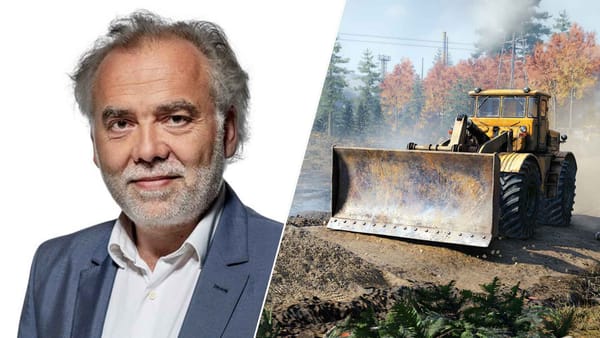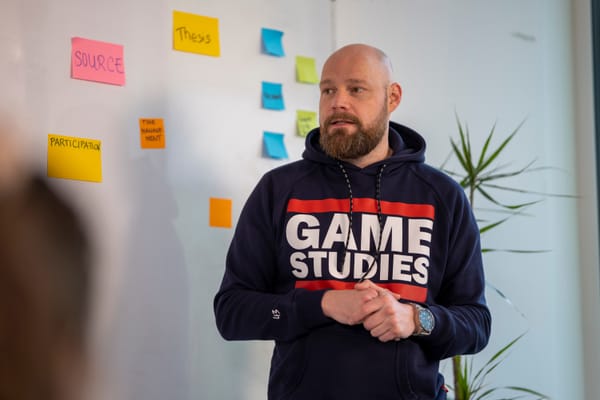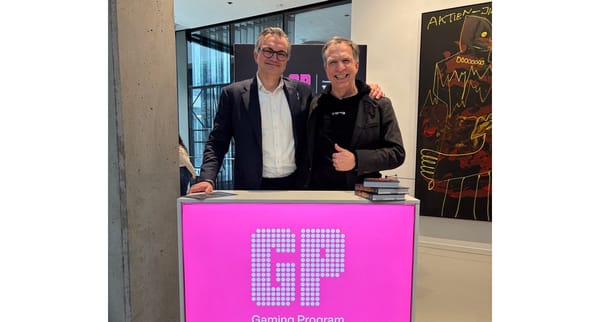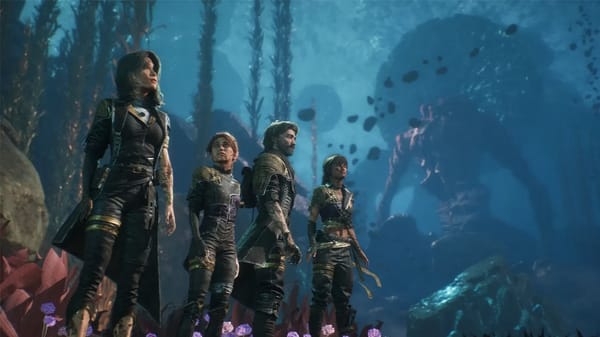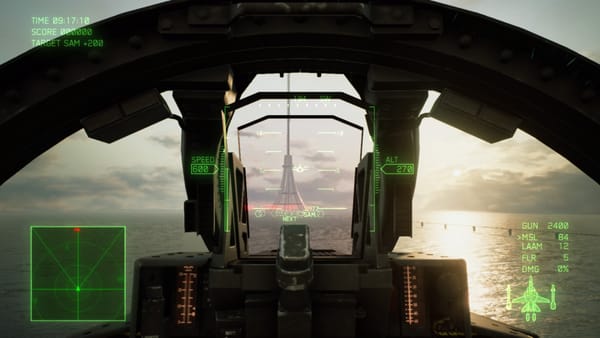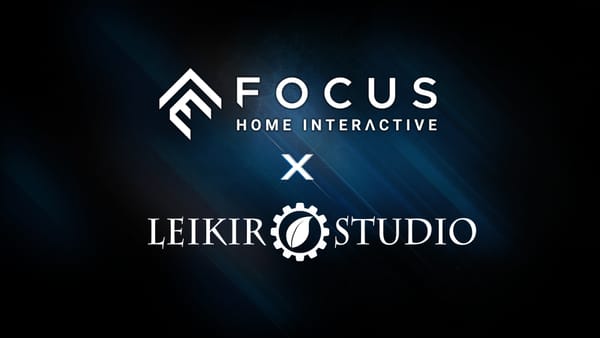MFG Baden-Württemberg: Supervision, Advice and Funding for CCIs
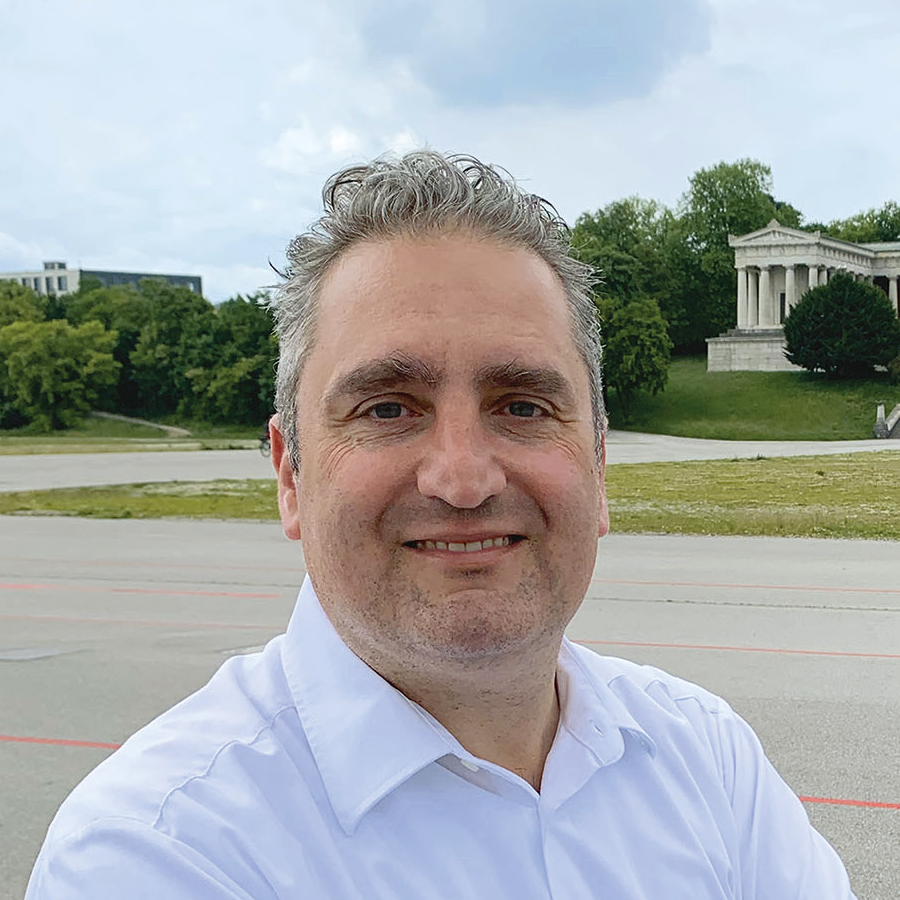


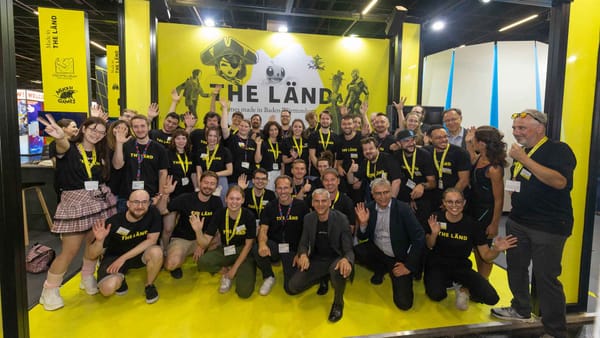
With an incredible range of projects, MFG has been supporting the cultural and creatives industries in Baden-Württemberg for almost 30 years. The fruits of this hard work are award-winning studios and a unique pool of creative talents.
MFG Baden-Württemberg was founded back in 1995 as an institution of the state of Baden-Württemberg and the public broadcast company Südwestrundfunk. MFG is short for Medien- and Filmgesellschaft and shows the roots of the institution. Unlike comparable companies in other federal states, MFG has focussed on the film and media industry from the scratch. In particular, MFG was an early supporter of visual effects (VFX) and animation. This allowed a talent pool and a creative scene to develop in these areas in Baden-Württemberg that is probably unique in Germany and from which the local games industry also benefits. After all, VFX and animation are one of the areas in which the games and film industries overlap significantly. The best example of this is the Filmakademie Baden-Württemberg. Located just a few kilometres north of Stuttgart, it is one of the most important film schools in the world and the Film Academy's Animation Institute is one of the world's leading training centres for animation, visual effects, technical directing, animation/effects producing and interactive media. Many companies from Baden-Württemberg, including those in the games industry, were founded by or with the involvement of Filmakademie graduates.
However, the path to games funding in Baden-Württemberg was not a straightforward one. In December 2010, the then Media Minister of Baden-Württemberg, Helmut Rau, announced that the "Digital Content Funding" programme would also support computer and video game productions with 500,000 euros per year. The plan was that only educationally and culturally valuable games would be supported. "By funding high-quality interactive media applications, we want to create incentives for the games industry and increasingly develop alternatives to so-called action games in the educationally valuable segment," said Rau at the time. It was a breakthrough for games developers, but also for Baden-Württemberg as location for gaming companies. Although other states such as Hamburg or Bavaria were already a little further ahead in terms of games funding, the MFG team was now able to start supporting and networking the scene in a variety of ways. And they did this in their very own way. The proximity to film and, above all, to VFX and animation was reflected in the numerous projects that MFG promoted in the area of digital content. Baden-Württemberg was one of the first states to add VR projects to its games funding programme. As early as 2017, Baden-Württemberg increased its funding by 160,000 euros to specifically support VR and AR projects in the state. At the same time, MFG and the Filmakademie launched the project-related talent promotion initiative VR Now. Three project teams each received continuous project support for one year to develop VR and XR ideas into presentable prototypes. The programme was a great success and ran for a total of five years until 2020.
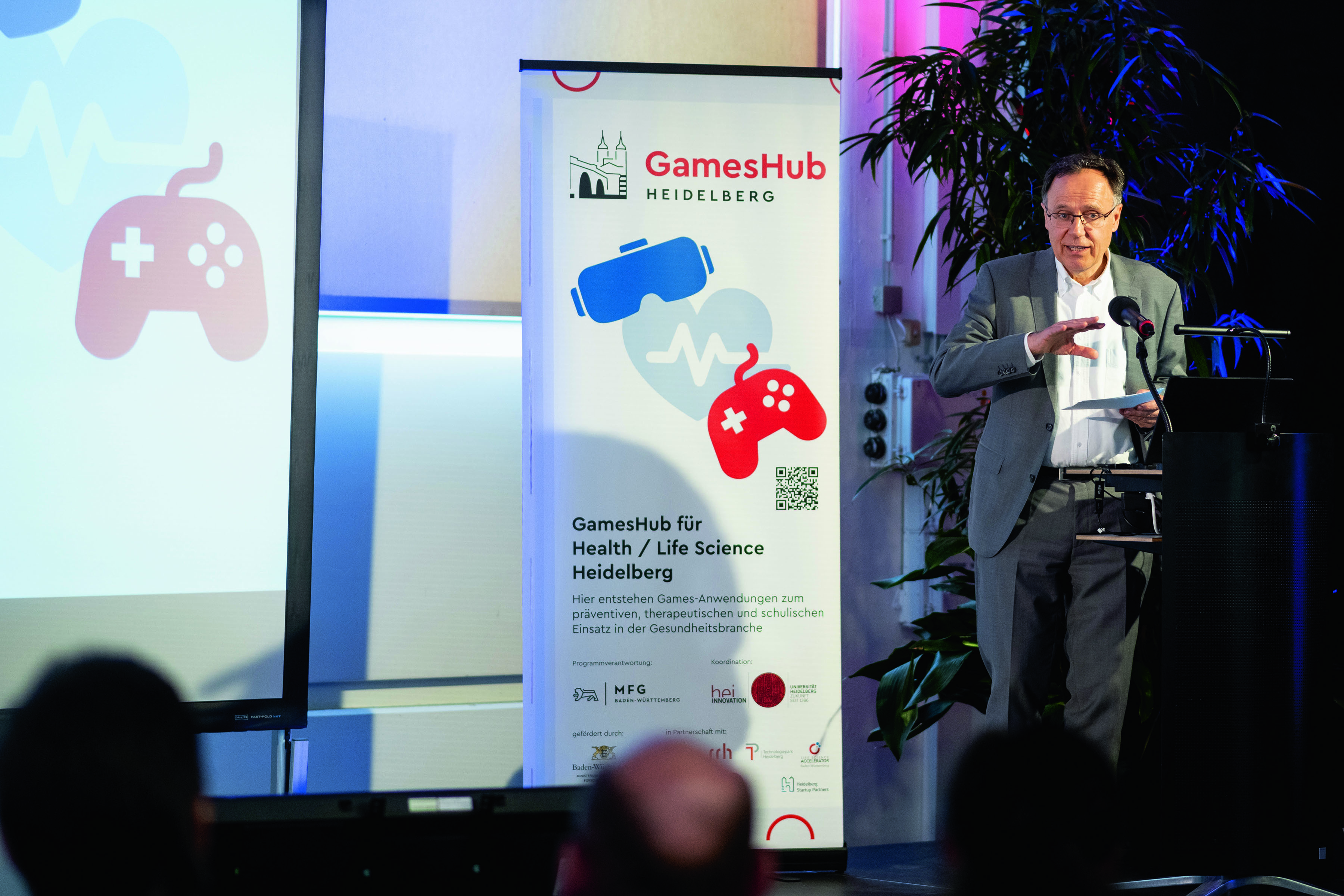
"The games industry is an important part of Baden-Württemberg‘s creative economy. With our Games BW funding programme, we support the development of innovative digital games and enhance the networking and visibility of this lively and growing scene. Our aim is to strengthen the various potentials of the local games industry and to position Baden-Württemberg as a leading European location for creative talents and future-oriented companies in the fields of games, interactive media, animation and visual effects." - Carl Bergengruen, Managing Director MFG Baden-Württemberg
2020 was also the year in which games funding in Baden-Württemberg took a decisive step. A new funding guideline ratified by the EU came into force on 1 July. This not only enabled higher funding amounts. The new directive replaced the Digital Content Funding Programme with a dedicated games funding programme. It was the birth of Games BW. Under this umbrella, MFG not only organises project funding, but also numerous activities to network, support and raise the profile of the local games industry.
The joint appearance at gamescom in Cologne is one of these central activities. The booth is independent of but close to the Made in Germany area and not only serves as a base for the co-exhibitors, but has also been a piece of Baden-Württemberg in Cologne since 2017. Leading state politicians such as Dr Patrick Rapp (State Secretary at the Ministry of Economic Affairs, Labour and Tourism) and Arne Braun (State Secretary in the Ministry of Science, Research and Arts) visted the booth in 2023 stand, whose design now reflects the Baden-Württemberg image campaign in striking yellow. Even Vice-Chancellor and Federal Minister of Economics Robert Habeck made sure to stop by "The Länd" during his tour.
The Open Stage Events, which are organised by MFG under Games BW and in collaboration with partners such as game — Baden-Württemberg, the regional representation of game — The German Games Industry Association, the CyberForum, the K3 Cultural and Creative Industries Office of the City of Karlsruhe and the Film Commission Region Stuttgart, are by now a tradition and an established networking event for the industry. At the free events, the stage is opened up to everyone after one or two keynote speeches. Afterwards, there is plenty of opportunity for networking. The next Open Stage event will take place on 25 September in Karlsruhe. A digital edition of Open Stage Games BW including the Studi Stage is then planned for 27 November. At the Studi Stage, students can exchange ideas and network before the start of the Open Stage.
Supported by MFG, there are currently two GamesHubs in Baden-Württemberg. In Ludwigsburg, MFG supports the Kokolores Collective by subsidising work stations for developers. As Kokolores is home to numerous indie teams, an easy exchange between them and the developers is guaranteed. In total, the 400 square metres of space offer room for 23 people in seven offices. There are also a presentation room, two meeting rooms and everything else necessary for a functioning office community. In 2021 and untill 2024, a second GamesHub was created in Heidelberg with the involvement of MFG. The GamesHub for Health/Life Science was not intended for developers of entertaining games, but for teams developing games applications for preventive, therapeutic and educational use in the healthcare sector. This GamesHub project, which was coordinated by the University of Heidelberg and heiInnovation, is unique in Germany.
The Developer Boost programme is intended for smaller indie teams in particular. In the qualification programme, teams receive funding in the form of expert workshops, coaching, pitch training and pitch presentations or team funding in the amount of 1000 euros, which can be used for participation in networking events, trade fairs or travel expenses, among other things. The programme includes around 30 hours of coaching and 30 hours of workshops and addresses studios, which were founded in the last 18 months or will be founded during the Developer Boost period.
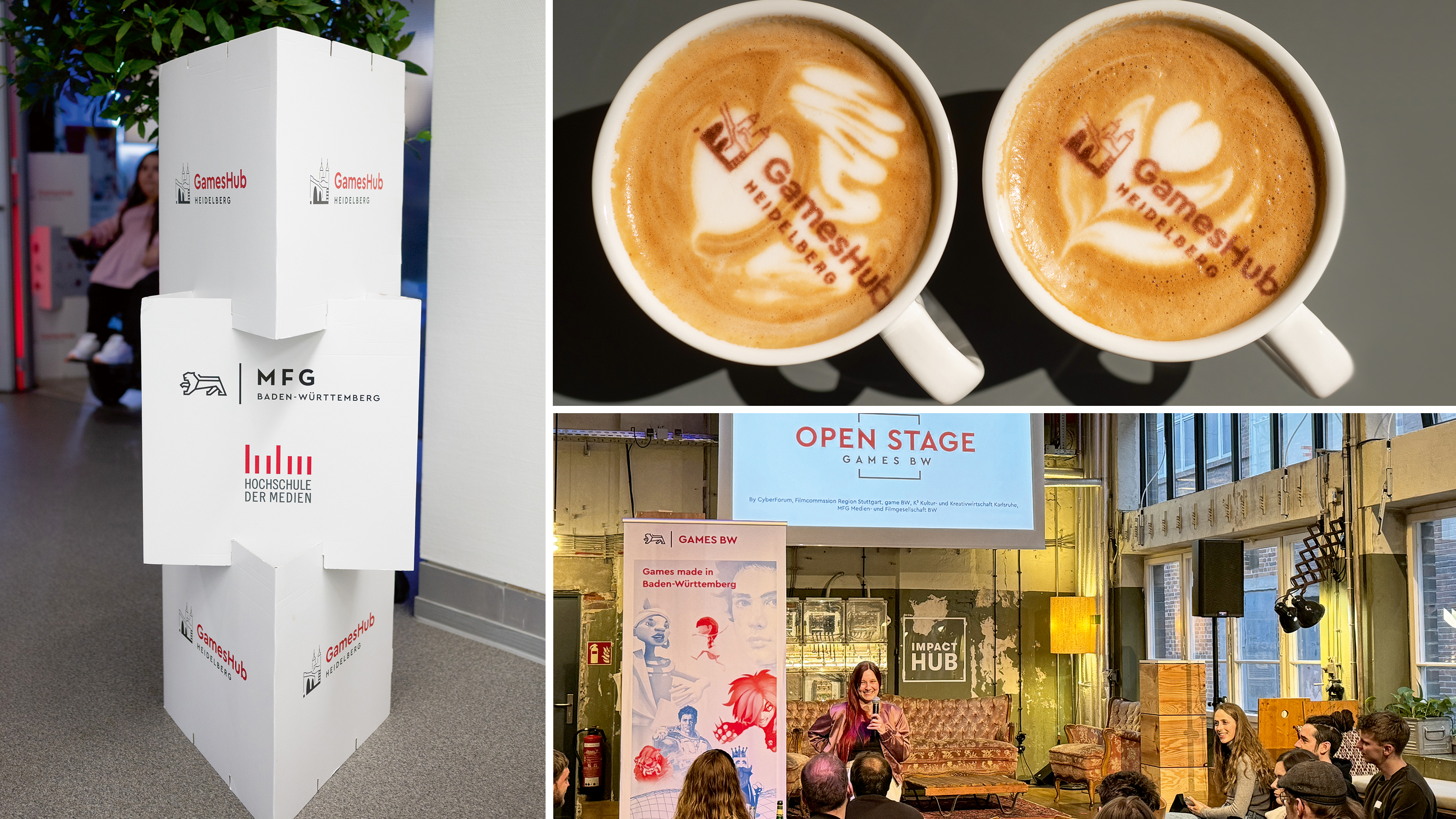
The Gamestate Festival has become a fixed date in the calendar of Baden-Württemberg game developers. This year, it took place in Karlsruhe in mid-July. Developers, students and lateral entrants meet at the festival to exchange ideas and explore opportunities. There are also talks, roundtables, a party and networking. MFG is a partner and sponsor together with K3, CyberForum, game — Baden Württemberg, gameforge and Spellgarden Games.
With the interactive Games BW Players map, MFG provides an online directory of the games industry in Baden-Württemberg that helps both large and small companies with visibility. As a company, MFG also offers numerous other services that may or may not attract games companies. When it comes to visibility, for example, MFG also produces the study KreativLandBW. Another example is the competition "The Creative Länd Chällenge", which was recently launched. It invites creative people from the eleven sectors of the cultural and creative industries in Baden-Württemberg: architecture, the book market, performing arts, design, film, art, music, press, broadcasting, software and games as well as advertising to take part. Another competition that is not aimed at a specific sector is Ideenstark, which also promises support and coaching for the winners.
Other programmes, on the other hand, are less interesting for game developers, but show the variety of ways in which MFG supports the cultural and creative industries in the state. For example, there is the MFG Digitalwerkstatt for small and medium-sized museums, HOLA, the cross-university laboratory for co-operative work, Hack To The Future, a coding training course for young people, the Baden-Württemberg School Media Prize and idee-bw, the ideas competition of Kindermedienland Baden-Württemberg (in future: MedienFokus BW). Last but not least, the MFG Academy offers a comprehensive further education programme for creative professionals from various sectors.
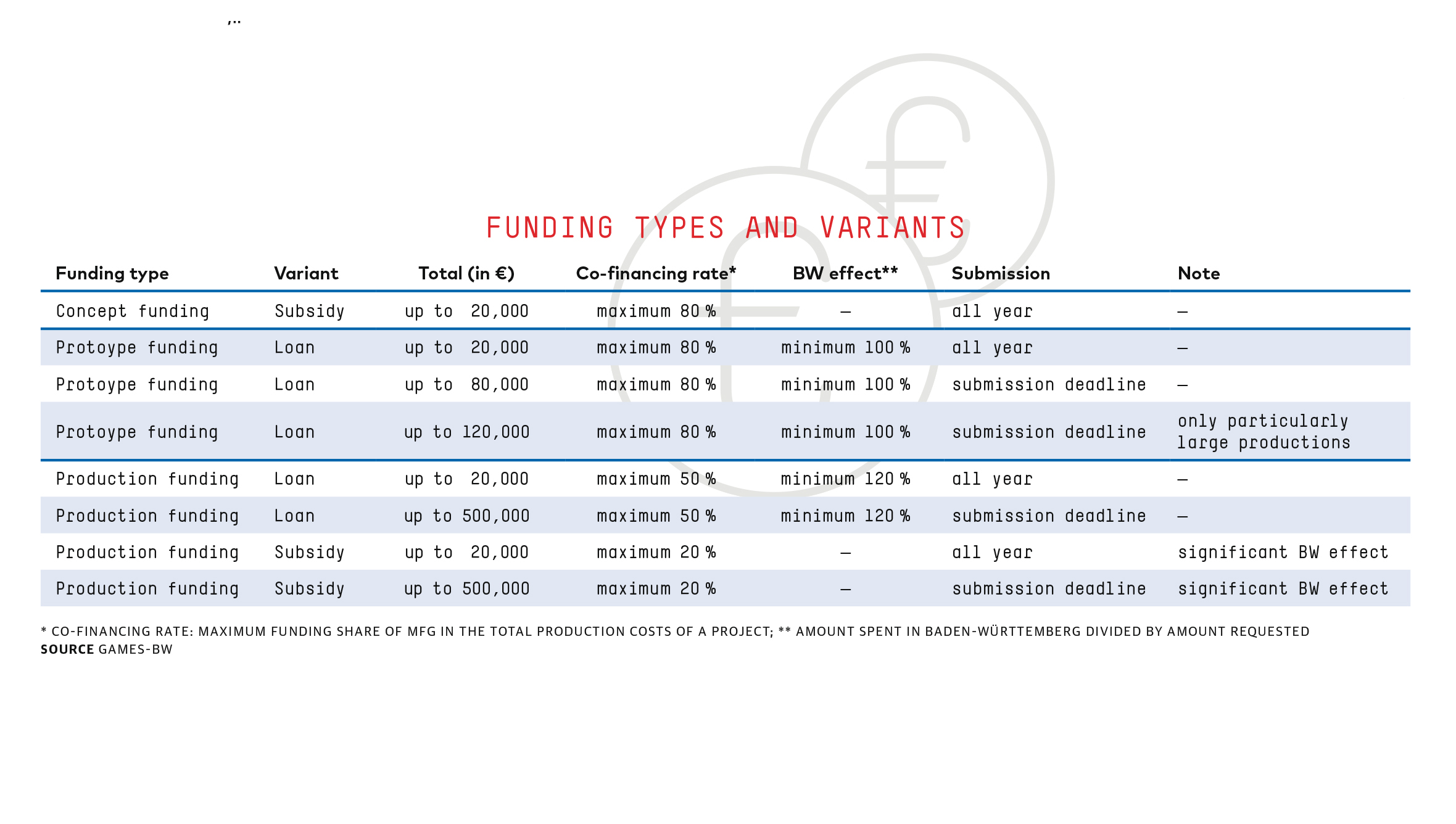
In the middle of the year, Games BW launched a series of interviews to give women in the games industry more visibility. Prof Dr Sabiha Ghellal, professor at the Stuttgart Media University, kicked off the series by talking about her path into the games industry and how she feels about the representation of women in the industry. The second interview was given by Kathrin Radtke, founder of Spellgarden Games and until recently a representative of game in Baden-Württemberg. Interviews are also planned with Mucks! Games, Laura Kaltenmeier and Lea Schönfelder.
